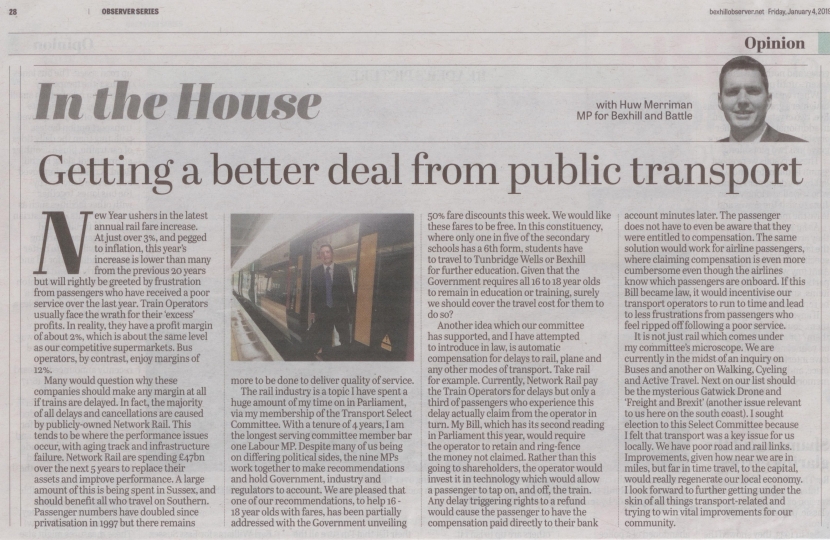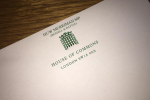
New Year ushers in the latest annual rail fare increase. At just over 3%, and pegged to inflation, this year’s increase is lower than many from the previous 20 years but will rightly be greeted by frustration from passengers who have received a poor service over the last year. Train Operators usually face the wrath for their ‘excess’ profits. In reality, they have a profit margin of about 2%, which is about the same level as our competitive supermarkets. Bus operators, by contrast, enjoy margins of 12%.
Many would question why these companies should make any margin at all if trains are delayed. In fact, the majority of all delays and cancellations are caused by publicly-owned Network Rail. This tends to be where the performance issues occur, with aging track and infrastructure failure. Network Rail are spending £47bn over the next 5 years to replace their assets and improve performance. A large amount of this is being spent in Sussex, and should benefit all who travel on Southern. Passenger numbers have doubled since privatisation in 1997 but there remains more to be done to deliver quality of service.
The rail industry is a topic I have spent a huge amount of my time on in Parliament, via my membership of the Transport Select Committee. With a tenure of 4 years, I am the longest serving committee member bar one Labour MP. Despite many of us being on differing political sides, the nine MPs work together to make recommendations and hold Government, industry and regulators to account. We are pleased that one of our recommendations, to help 16 - 18 year olds with fares, has been partially addressed with the Government unveiling 50% fare discounts this week. We would like these fares to be free. In this constituency, where only one in five of the secondary schools has a 6th form, students have to travel to Tunbridge Wells or Bexhill for further education. Given that the Government requires all 16 to 18 year olds to remain in education or training, surely we should cover the travel cost for them to do so?
Another idea which our committee has supported, and I have attempted to introduce in law, is automatic compensation for delays to rail, plane and any other modes of transport. Take rail for example. Currently, Network Rail pay the Train Operators for delays but only a third of passengers who experience this delay actually claim from the operator in turn. My Bill, which has its second reading in Parliament this year, would require the operator to retain and ring-fence the money not claimed. Rather than this going to shareholders, the operator would invest it in technology which would allow a passenger to tap on, and off, the train. Any delay triggering rights to a refund would cause the passenger to have the compensation paid directly to their bank account minutes later. The passenger does not have to even be aware that they were entitled to compensation. The same solution would work for airline passengers, where claiming compensation is even more cumbersome even though the airlines know which passengers are onboard. If this Bill became law, it would incentivise our transport operators to run to time and lead to less frustrations from passengers who feel ripped off following a poor service.
It is not just rail which comes under my committee’s microscope. We are currently in the midst of an inquiry on Buses and another on Walking, Cycling and Active Travel. Next on our list should be the mysterious Gatwick Drone and ‘Freight and Brexit’ (another issue relevant to us here on the south coast). I sought election to this Select Committee because I felt that transport was a key issue for us locally. We have poor road and rail links. Improvements, given how near we are in miles, but far in time travel, to the capital, would really regenerate our local economy. I look forward to further getting under the skin of all things transport-related and trying to win vital improvements for our community.




